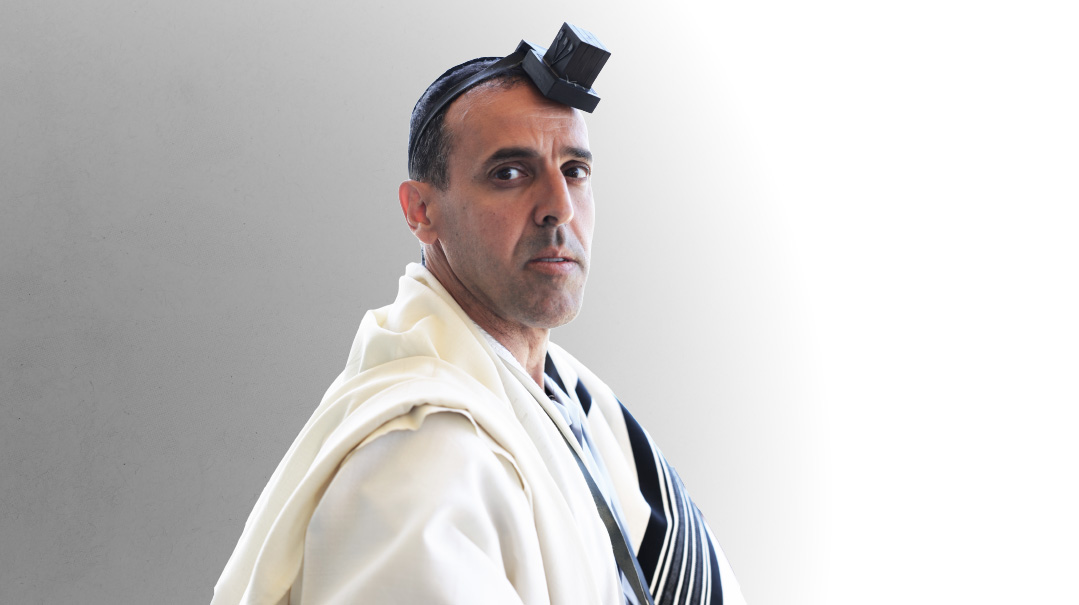A Month Without

At the cusp of a new year, four men share their month-long journey toward upgraded lives

Thirty days. That’s how long researchers say it takes to change a habit. At the cusp of a new year, four men share their month-long journey toward upgraded lives. Follow along as they deliberate over what to do without for a month, learn how their experiments changed their lives (or didn’t), cheer their progress, and discover the insight they acquired along the way
This project began a few years back when Family First ran an article featuring five women who committed to giving something up for a month. With courage and enthusiasm, they tracked the progression of their commitment, describing how it helped them gain an outside perspective on the vicissitudes of life, to value the everyday things we take for granted, to get that rare glimpse at the ordinary and find the blessings within.
“If it worked for the women,” said some at Mishpacha headquarters, “why not try it on the men?”
Ha. Men and commitment. That works about as well as ice hockey in the Sahara Desert. Nonetheless, I started making phone calls, asking various men, in the sweetest voice I could muster, if they would be willing to take on a monthlong commitment. Here are some of the responses:
“No.”
“No, of course not.”
“Commitment? That’s a little weird, man.”
“No, but once you’re on the phone, listen up. Three off-market multi-families in Kearney, Nebraska. I’m going cash, will finance later. Need another fifty. You in?”
“Commitment? Isn’t that a girl thing?” (This guy called back later. He had some shalom bayis issues he wanted to discuss.)
Anyway, I searched and searched, feeling much like the assistants of Mayor Fiorello LaGuardia combing New York City for the Jewish kid who got the nickel on the trolley car. Finally, after begging, pleading, coercing, and actually writing out a $50,000 check for that wacky investment (it bounced), here’s what I got.
The Refresher
At a Glance
I don’t want to disclose my identity, so I won’t tell you exactly what my business slogan is. But it’s something to the effect of, “We put our clients first.” The problem is, it isn’t entirely true. My clients, at best, come third. First comes The Yeshiva World. Next comes Matzav. Not necessarily in that order. It all depends on whether my finger lands on the “M” or the “T” of the keyboard first. Then, after all that, comes the client. But just for a minute. Both other tabs remain open, and I’m constantly ducking back in. If nothing new appeared in the last 20 seconds, I’m convinced that all I need to do is refresh, and the life-altering newsflash will appear. As for my client, yeah, he’s still there.
My Goal
I guess the end goal here is to become a more efficient worker and more functional human being. Tall order. There’s nothing wrong with being a news junkie, but, seriously, do I really think the US will wipe North Korea off the map and I’ll miss it because I failed to refresh Yeshiva World at the right second? So here’s what I hope to do: Check Yeshiva World/Matzav once in the morning, when I get to work, and that’s it. No more until I leave work. I think that’s normal. I wouldn’t mind trying it. Just for a month.
Week 1
Don’t laugh, it was really hard. Like, I’m allowed to check in the morning, right? That morning check used to be just a quick peruse, make sure the world hadn’t blown up yet, then check out until next time (20 seconds later). Now, I could barely let go, knowing that this would be a real goodbye. Multiple times throughout the day I felt my finger automatically heading for the “T” or the “M” and it took a minute to realize what I was doing. I’d love to say that my work productivity picked up; after all, I was finally putting my clients first, as per my slogan. But instead, my mind kept inventing its own newsflashes, and by the time the workday was over, I really was convinced that the US had wiped North Korea off the map.
Week 2
This was the weirdest week. I was basically done with the commitment, ready to go back to the good old days. I had too much pride to admit defeat outright, so I put on my lamdan hat and started coming up with all kinds of shtiklach Torah. Like, when I said I wouldn’t check Yeshiva World, I meant on my computer; I never said anything about my phone. Also, I said I won’t check until I leave work. But what does “leave work” mean? Lichoirah, if I leave my office for lunch break, that’s called “leaving work,” no? And once we’ve established that, why wait for lunch? I could just decide to walk out of my office for a minute — that’s also “leaving work,” maskim? It sounds funny, but these thoughts really went through my mind and, I’m ashamed to say, I sometimes went along with them. I think I should quit work and become a posek.
I’ve discovered I’m great at finding heterim.
Oops! We could not locate your form.







